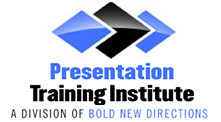Practice Deep Breathing
Meditation and deep breathing are great ways to calm your body before a presentation. Breathing releases oxygen throughout the body which calms your nerves and helps to reduce anxiety. You can even incorporate mindfulness and positive thinking as you breathe to stay focused, slow your heart rate, and quiet the noise in your brain. You can practice breathing exercises daily to reduce anxiety leading up to the presentation and it’s always helpful to take several slow, deep breaths right before the presentation to calm your body and your nervous system.Â
Know Your Topic and Prepare
One of the most effective ways to handle presentation anxiety is to simply know your topic well and spend plenty of time researching and planning. The more familiar you are with your topic and what you plan to say, the more it will boost your confidence. You will be more confident delivering the presentation and you will also feel more comfortable answering questions because you will know all the details of your topic.Â
Rehearse
As with anything else, the more you practice the better you will perform. You should practice and rehearse your presentation multiple times to help boost your confidence. You can practice in front of a mirror so you can pay attention to your body language and make changes as needed. It’s also important to practice in front of a friend, family member, or colleague who can provide additional feedback.Â
Check Out the Venue Ahead of Time
Another great way to reduce presentation anxiety is to familiarize yourself with the venue and its setup. Make sure you know where you will be standing, how the seats will be positioned, how to work the audio and technical equipment, as well as how it will be lit. Knowing the venue ahead of time will help you anticipate any stressful situations that might arise.Â
Visualize Your Success
There’s a lot to be said about positive thinking. Even professional athletes and performers practice visualization before a performance. Imagine yourself speaking confidently, winning over your audience, and succeeding in your presentation delivery. When you believe in yourself, you are more likely to perform to the best of your ability. Seeing yourself as a success boosts your confidence and reduces stress and anxiety.Â
Â
